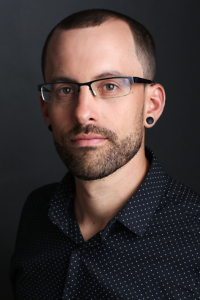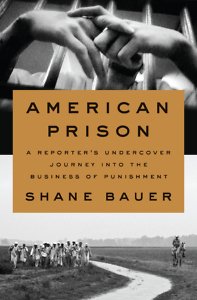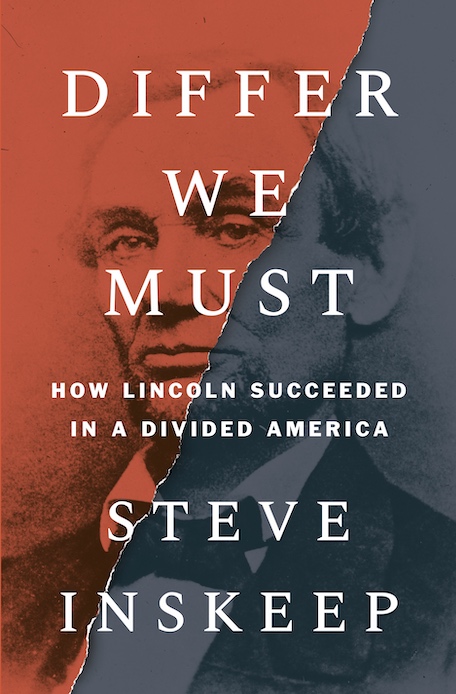Blood and Profit
Journalist Shane Bauer spent four months undercover in a private prison
As a prison guard, Shane Bauer saw scenes that came straight from hell. Inmates stabbed each other. They lit fires to protest their conditions. They endured the sting of pepper spray. They clamored for the necessities of human existence. And they berated and threatened him, altering the chemistry in his brain, rendering him edgy and belligerent, making him question his very identity.

He got paid nine dollars an hour. He later got a one-dollar raise, which meant he was making the same wage as workers at the local Walmart.
In American Prison, Bauer describes his four-month stint at Winn Correctional Center in Louisiana, a facility run by Corrections Corporation of America (now called CoreCivic). An undercover reporter, he meticulously and evocatively described the deprivations of this prison in a National Magazine Award-winning article for Mother Jones. Bauer’s book elaborates upon this experience and provides a deeper history of for-profit prisons.
Bauer brings a unique perspective to incarceration. In 2009, he and two fellow Americans were hiking in Iraqi Kurdistan and unwittingly drifted across the Iranian border. In a saga of international political intrigue, he spent two years in Iran’s notorious Evin Prison, struggling to preserve his hope and sanity. (His 2014 book about the experience, co-written with his fellow prisoners Joshua Fattal and Sarah Shourd, is A Sliver of Light.)
When applying for the job at Winn Correctional Center in 2014, Bauer envisioned himself as a voice for justice. Seeking the highest profit margins, prisons run by CCA routinely cut corners. Their bare-bones staff lacks the resources to maintain order, prisoners receive terrible health care, and officers ignore basic standards for security checks and prisoner welfare. The audit process by the American Correctional Association is a farce.
Knowing all this going in, Bauer nevertheless felt the job’s pressures changing him. He felt isolated and conflicted. At times, he and a prisoner could see each other as flesh-and-blood people, but later the experience would make him question whether he was being exploited. Instead of decrying the flawed structure of for-profit imprisonment, he directed his fury at the prisoners themselves.
“It is getting in my blood,” he writes in American Prison, which sometimes unfolds in the present tense, like a series of journal entries. “The boundary between pleasure and anger is blurring. To shout makes me feel alive. I take pleasure in saying no to prisoners.” He describes the pleasure of meting out small punishments, the thrill he felt at the prospect of a riot. “Everyone would be coughing and gasping, including me, and it would be good because it would be action. All that matters anymore is action.”
 Bauer intersperses these searing first-person accounts with a history of the private-prison system. Convict labor dates to colonial-era settlement, and the practice thrived in the mid-nineteenth century. In 1865 the Thirteenth Amendment to the U.S. Constitution banned slavery “except as a punishment for a crime.” Plantation owners and industrial interests exploited that loophole, building empires on the backs of dirt-cheap labor who could be literally worked to death.
Bauer intersperses these searing first-person accounts with a history of the private-prison system. Convict labor dates to colonial-era settlement, and the practice thrived in the mid-nineteenth century. In 1865 the Thirteenth Amendment to the U.S. Constitution banned slavery “except as a punishment for a crime.” Plantation owners and industrial interests exploited that loophole, building empires on the backs of dirt-cheap labor who could be literally worked to death.
American Prison paints a damning portrait of T. Don Hutto, co-founder and former CEO of the corporation. In 1971 Hutto took over Arkansas prisons from a reform-minded administrator. Under his own brutal regime, those prison farming operations became profitable. In 1983, in Nashville, he started CCA. He then became head of the American Correctional Association, which accredited CCA. Under the logic of private business, state governments pay CoreCivic to take their prisoners, and the corporation keeps its own costs to a minimum while simultaneously requiring occupancy guarantees that keep its prisons filled. In 2018 Hutto earned $4 million.
A 2016 Department of Justice report stated that private prisons had higher levels of violence, offered fewer correctional programs, and failed to save substantial costs; consequently, the federal government ceased contracting with private prisons. Yet in early 2017, new attorney general Jeff Sessions reversed that decision. CoreCivic’s stock prices again rose.
Of the 1.5 million prisoners in the United States, approximately 130,000 are in privately-run prisons. Bauer holds out little hope of any legitimate reform: “If CCA raised guards’ wages, hired enough staff, and provided adequate staff, it would lose its profit margins,” he writes. “If, on the other hand, states raised their rates to cover the costs of reforms, they would no longer be saving money, which means there would be no reason for them to rely on private companies to run their prisons.” As American Prison tragically makes clear, the weight of this paradox lands on the shoulders of the people in the prison system.

Aram Goudsouzian chairs the history department at the University of Memphis. His most recent book is Down to the Crossroads: Civil Rights, Black Power, and the Meredith March Against Fear.


